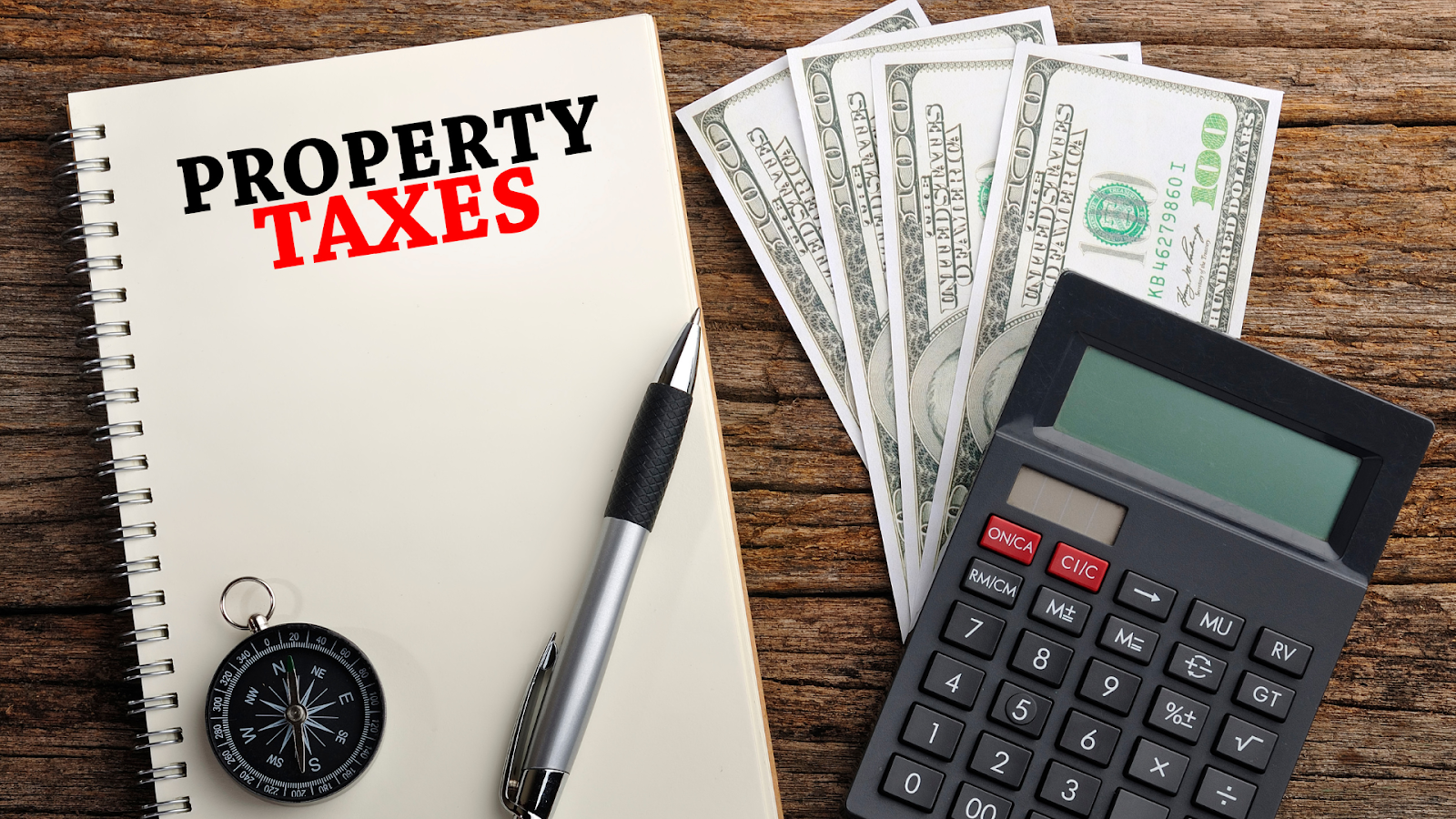Why Are Property Taxes So High In Texas?
September 14, 2025

Key Takeaways:
- Tax Structure Insight: Texas has no income tax, placing a heavier burden on property taxes to fund local services like schools and emergency response.
- Appraisal System Explained: County appraisal districts use mass appraisal methods and adjusted comps to assign property values, which often need to be challenged.
- Homeowner Action Point: Filing a protest is not just allowed, it’s essential if you want to avoid overpaying based on inaccurate or inflated valuations.
At Texas Tax Protest, we’ve helped homeowners challenge over $85 million in property tax assessments across the state, and we do it with local expertise, advanced technology, and a process rooted in real results. For more than a decade, we’ve worked face-to-face with Texas property owners, delivering personalized support, not empty promises. We’re not here to guess or generalize, we know how appraisal districts work, how to challenge inflated values, and what it takes to help Texans fight back.
Property taxes in Texas aren’t just high, they’re confusing, frustrating, and rising faster than many homeowners can keep up with. Unlike many other states, Texas places a massive financial burden on property owners to fund everything from public education to emergency services. Add in unpredictable appraisal values, limited transparency, and complex protest procedures, and you’ve got a system that leaves many Texans feeling powerless. But there is a path forward, if you understand how the system works.
In this piece, we’ll break down why property taxes are so high in Texas, how the appraisal and tax process works, and what you can do to take control of your assessment.
No State Income Tax Means Higher Property Taxes
One of the biggest reasons property taxes are so high in Texas is simple: Texas doesn’t have a state income tax. While this may sound appealing on the surface, the reality is that the money to fund essential public services still has to come from somewhere, and that “somewhere” is often your property tax bill.
Without income tax revenue to pull from, local governments rely heavily on property taxes to fund schools, roads, police, fire departments, libraries, and other vital infrastructure. As a result, homeowners end up shouldering a larger share of the state’s total tax burden compared to residents in states with both income and property taxes.
This structure puts unique pressure on appraisal districts to maintain, or increase, property values year over year. That leads to what many Texas homeowners feel every spring: sticker shock from an unexpectedly high valuation.
Even if your income hasn’t changed, your home’s value likely has, at least according to the county appraisal district. And unless you take action, that new number directly impacts what you’ll owe.

School District Funding Drives Most Of The Tax Bill
When Texas homeowners look at their annual tax bill, many are surprised to learn that the largest portion typically goes to public schools. Education funding is one of the primary reasons property taxes in Texas are so high, and here’s how that system works:
School Districts Rely Heavily On Local Property Taxes
In Texas, public schools are funded through a mix of state money and local property taxes, but the local portion often carries the most weight. Each school district sets a Maintenance & Operations (M&O) tax rate, which is applied directly to the appraised value of your home. These funds are essential for daily school operations like teacher salaries, transportation, and utilities.
Recapture (Robin Hood) Adds Pressure To Tax Rates
To balance funding across wealthier and less affluent districts, Texas uses a controversial mechanism called recapture, often referred to as the “Robin Hood” system. If a district is considered property-wealthy, a portion of its tax revenue is sent to the state to redistribute to other districts. This often leads to school districts raising rates just to meet local needs while still complying with state mandates.
Your Tax Bill Increases Even If The Tax Rate Stays The Same
Even when a school district doesn’t increase its tax rate, your actual bill can still rise due to changes in your appraised value. The math is simple: higher value × same rate = higher taxes. That’s why so many Texans feel squeezed, even when taxing entities say they haven’t raised rates, the outcome is still a bigger bill.
Appraisal Districts And How Values Are Assessed
Your property tax bill starts with one thing: the appraised value of your home. County appraisal districts are responsible for setting this number, and their process can feel anything but transparent. Here’s what really happens behind the scenes:
What Appraisal Districts Actually Do
Each county in Texas has an appraisal district that determines the market value of all properties within its boundaries. For example, in Tarrant County, this is done by TAD (Tarrant Appraisal District). Their job is to estimate what your home would sell for on January 1st of the tax year, not what you paid for it, or what you think it’s worth.
Comparable Sales (Comps) Are Used, With Adjustments
Appraisal districts use comparable sales to determine your home’s value, meaning they look at similar homes in your area that have recently sold. However, they don’t just copy numbers from sales reports. Mathematical adjustments are made for size, age, location, upgrades, and other features to align the comps more closely with your property. This is where things can get tricky, and where many valuations become debatable.
Mass Appraisal Methods Leave Room For Error
To process thousands of properties efficiently, appraisal districts use a mass appraisal model, which can sometimes miss individual property nuances. That means homes with unique features, deferred maintenance, or unusual layouts may be overvalued simply because the system doesn’t catch the differences. This is one reason so many homeowners find success when they file a protest.
You Have The Right To Dispute The Value
If you disagree with your assessed value, you don’t have to accept it. Texas law allows homeowners to file a formal protest, giving you a chance to present evidence and challenge the number. This is where having a knowledgeable team on your side, like ours at Texas Tax Protest, can make a real difference.
Why Your Neighbor Might Pay Less Than You
One of the most frustrating parts of property taxes in Texas is comparing your bill to your neighbor’s, especially if their home looks similar but their taxes are lower. Here’s why that happens more often than you might think:
Differences In Appraised Value Aren’t Always Logical
Even if your home and your neighbor’s are nearly identical, their appraised value may be lower. This could be due to differences in how the appraisal district adjusted comparable sales, or because your neighbor has successfully protested their value in recent years while you haven’t.
Prior Protests Can Lock In Lower Values
If your neighbor protested their appraisal in a previous year and won, that lower value often serves as the baseline for future assessments, keeping their taxes down while yours continue to rise. Without action on your part, your property could remain at a higher value simply because you didn’t challenge it.
Exemptions May Be In Play
Another reason could be exemptions, such as homestead exemptions or over-65 exemptions, which lower the taxable value of a property. While Texas Tax Protest does not offer exemption services, it’s worth noting that if your neighbor has one and you don’t, their tax bill could be significantly reduced as a result.
Timing And Repairs Can Skew Values
If your property underwent renovations before January 1st or if your neighbor had storm damage that wasn’t repaired in time, their home may be appraised differently. Appraisal districts look at property condition as of January 1, so timing plays a big role in perceived value.

The Role Of Local Governments In Raising Rates
Even when property values rise, that’s only part of the equation. Local taxing entities also play a direct role in how much you pay by setting, and sometimes increasing, tax rates. Here’s how that works:
Multiple Taxing Entities, Multiple Rates
Your property tax bill is a combination of rates from various local entities, not just one. These can include your school district, city, county, hospital district, community college district, and others depending on where you live. Each one sets its own rate, and all of them are applied to your property’s assessed value.
Local Governments Can Raise Rates, Even Quietly
Even if appraisal values spike, local governments still have the option to reduce their tax rates to offset the increase. But many don’t. In fact, some increase rates or keep them steady, allowing revenue to climb with rising property values. This often results in homeowners paying significantly more, even when tax rates are technically “unchanged.”
Public Hearings Often Go Unnoticed
Before tax rates are finalized, taxing entities must hold public hearings to propose increases. However, most homeowners aren’t aware of these meetings or how to participate. As a result, rate increases can happen with very little public input, and your tax bill reflects it the following year.
Why Protesting Your Property Taxes Matters
Many homeowners assume there’s nothing they can do about high property taxes, but that’s simply not true. Filing a protest is one of the few tools you have to push back, and it can lead to real savings when done correctly. Here’s why it matters:
The System Is Built To Be Challenged
Texas law gives every property owner the right to challenge their appraised value each year. This isn’t just a formality, it’s a critical part of the process. Without widespread protests, appraisal districts have little reason to adjust or correct overly aggressive valuations.
Overvaluations Are More Common Than You Think
Due to the mass appraisal process, it’s not unusual for homes to be overvalued by tens of thousands of dollars. Whether your property was compared to newer homes, inaccurately adjusted comps, or misclassified altogether, a protest can uncover, and correct, those errors.
Protesting Can Lead To Immediate Savings
Reducing your appraised value through a successful protest lowers your tax bill directly, and the effect can last for years. While tax rates may still fluctuate, a lower starting value puts you in a better position moving forward.
You Don’t Have To Navigate It Alone
Protesting can be complex, especially when you’re gathering evidence, adjusting comps, and preparing to present your case. That’s where the Texas Tax Protest team comes in, providing real support from Texas-based professionals who understand how appraisal districts work, including tricky areas like TAD in Tarrant County.
Take The First Step To Lower Your Property Taxes
High property taxes don’t have to be a permanent burden. The first step is knowing that you have options, and taking action. Whether it’s your first time protesting or you’ve done it before, the sooner you start, the better positioned you’ll be when values are assessed.
At Texas Tax Protest, we make the process as seamless as possible. We combine advanced data analysis with deep knowledge of local appraisal districts to give your protest the strongest foundation.
If you’re ready to stop overpaying and start pushing back, contact us today. Our Texas-based team is here to help you navigate your property tax protest with confidence.

Final Thoughts
Texas property taxes are high, not because of one single factor, but because of how the entire system is built. From the lack of a state income tax to rising home values and school funding mechanisms, the burden often falls hardest on homeowners who don’t fully understand their rights or options.
But you’re not powerless. Every homeowner has the legal right to challenge their appraisal, and with the right support, that challenge can lead to real savings. At Texas Tax Protest, we’ve spent more than a decade helping Texans take back control, one successful protest at a time.
If you’re ready to take the next step. reach out to us today. Let’s fight for a fairer tax bill, together.
Read also:
- Understanding Property Tax Caps and Limitations in Texas
- What to Do If Your Texas Property Tax Protest Is Denied
- What Happens If You Don’t Pay Property Taxes in Texas
Frequently Asked Questions About : Why Are Property Taxes So High In Texas?
What is the average property tax rate in Texas?
Texas property tax rates vary by location, but the average effective rate statewide is around 1.60% to 1.80%, which is among the highest in the U.S.
Are Texas property taxes higher than other states because of rising home values?
Rising home values contribute to higher bills, but the core issue is Texas’ funding model. Even if values stayed flat, the lack of an income tax puts more pressure on property taxes to fund local services.
Can property taxes be deducted on federal income taxes?
Yes, homeowners can typically deduct property taxes on their federal return, but the State and Local Tax (SALT) deduction cap is currently $10,000, which limits high-tax state residents.
Does having a mortgage affect how much property tax I pay?
Your mortgage doesn’t change your tax rate or property value, but lenders often collect property tax payments through escrow, which can make the impact feel less direct.
How often do property values get reassessed in Texas?
Appraisal districts in Texas reassess property values annually, as of January 1 each year. So your value, and potentially your bill, can change every year.
Are commercial properties taxed the same as residential ones?
Commercial and residential properties are both taxed based on appraised market value, but valuation methods and exemptions differ, often making commercial protests more complex.
Can property taxes in Texas ever go down?
Yes, but only if your property’s assessed value drops or if taxing entities lower their rates. Filing a protest is often the most reliable way to lower your bill.
Do new homeowners get hit harder with taxes in Texas?
New homeowners can face higher taxes if the previous owner had exemptions in place or if the home was undervalued. Tax bills are recalculated at current appraised values.
Does refinancing affect my property taxes?
Refinancing itself doesn’t impact your tax bill, but if your lender re-assesses the home as part of the refinance, that data could influence future appraisals.











